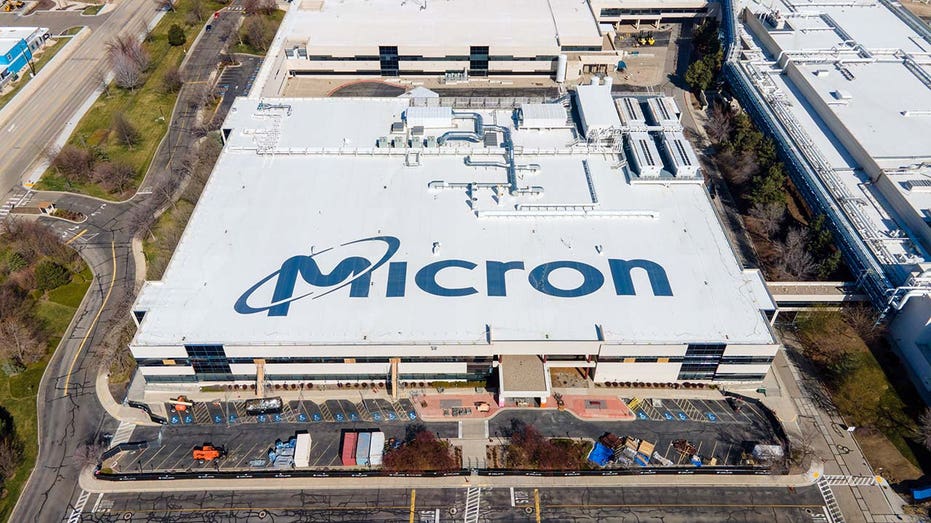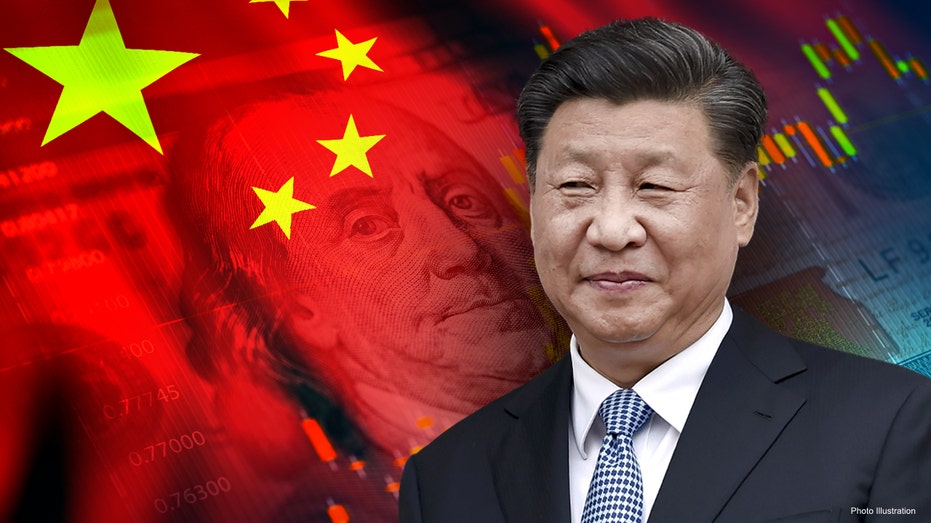US 'won't tolerate' China's ban on chipmaker Micron
China announced its ban on Micron chips from critical infrastructure networks on May 21
China likely targeted a very wide swath of critical infrastructure: Jonathan DT Ward
Atlas Organization founder Jonathan D.T. Ward breaks down the latest political and economic tensions between the U.S. and China.
The U.S. is pushing back on China’s ban on memory chips from Micron Technology, which was announced last week and based on vague national security concerns.
Commerce Secretary Gina Raimondo spoke Saturday at a news conference following a multinational trade meeting on the Indo-Pacific Economic Framework and said the U.S. government "firmly opposes" China’s ban on Micron and "won’t tolerate" the restrictions.
Raimondo added that China’s import restrictions "target a single U.S. company without any basis in fact, and we see it as plain and simple economic coercion and we won’t tolerate it, nor do we think it will be successful."
China accused Micron, which is a leading U.S. producer of semiconductors used in computer memory and data storage hardware, of posing a threat to national security. China’s cybersecurity agency announced on May 21 that, "Operators of critical infrastructure in China should stop purchasing products from Micron," citing "network security risks" that negatively affect "China’s national security."
CHINA SLAPS RESTRICTIONS ON US COMPANY OVER ‘NATIONAL SECURITY’ RISKS AS CHIP WAR ESCALATES

Commerce Secretary Gina Raimondo says the U.S. "won't tolerate" China's restrictions on Micron as the chip war escalates. (Ken Cedeno/UPI/Bloomberg via Getty Images / Getty Images)
Prior to China’s announcement, the U.S. and G-7 member countries announced new restrictions on China’s access to technology used in chip manufacturing.
"As we said at the G-7 and as we have said consistently, we are closely engaging with partners addressing this specific challenge and all challenges related to China’s non-market practices," Raimondo said.
Raimondo added that she raised the Micron issue in a meeting with China’s commerce minister, Wang Wentao, in a meeting on Thursday.
US NAVY VICTIM OF CHINESE STATE-SPONSORED HACKERS, SECRETARY SAYS

Micron Technology was hit with a ban by China's cybersecurity regulator. (Jeremy Erickson/Bloomberg via Getty Images / Getty Images)
In response to China’s announcement of the restrictions last week, Micron told FOX Business in a statement that, "We have received the CAC’s notice following its review of Micron products sold in China. We are evaluating the conclusion and assessing our next steps. We look forward to continuing to engage in discussions with Chinese authorities."
The U.S., Europe and Japan have taken steps over the last year to restrict the export of sophisticated chips that are used in manufacturing processes for cars, smartphones and computers to China over concerns that the Chinese government may use them to advance its military modernization or further internal repression.
US WEIGHS RESTRICTIONS ON INVESTMENT IN CHINESE AI FIRMS

The U.S., Europe and Japan have moved to restrict China's access to advanced computer chips. (Photo by Milos Bicanski/Getty Images | istock / Getty Images)
Those moves come as the Chinese Communist Party takes an increasingly aggressive stance toward regional neighbors like Taiwan and represses human rights in Hong Kong and Xinjiang.
China views the tech restrictions as an effort to block its development and has retaliated incrementally due to concerns that the trade restrictions may have a negative impact on Chinese companies that manufacture many of the world’s smartphones, computers and other consumer electronic devices.
| Ticker | Security | Last | Change | Change % |
|---|---|---|---|---|
| MU | MICRON TECHNOLOGY INC. | 394.69 | +11.80 | +3.08% |
GET FOX BUSINESS ON THE GO BY CLICKING HERE
About 10% of Micron’s revenue is derived from China, but the majority of those sales come from non-Chinese firms acquiring chips to use in products manufactured in China. It’s unclear whether the Chinese government’s newly announced restrictions will apply to non-Chinese firms operating in the country.
Reuters contributed to this report.




















